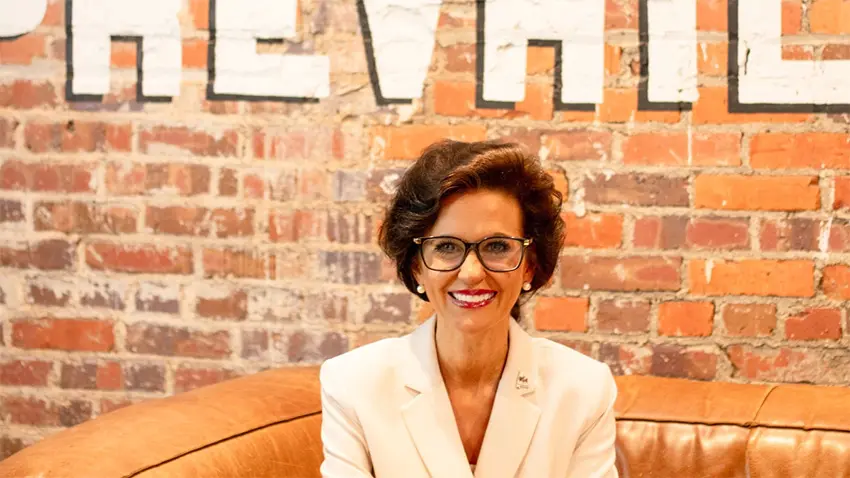Dr Nicole Wadsworth is a site selector and economic development consultant based in Alabama, known for her hands-on approach and deep ties to every corner of the state.
With over two decades of experience, she has visited all 67 Alabama counties more than 25 times. Her goal? To understand what makes communities grow—and how to help them do it sustainably.
Nicole holds four degrees, including a PhD, MBA, and an MS in Acquisition and Contract Management. She also earned the EDAA Leadership Certificate and became a Certified Alabama Planning and Zoning Official in 2013.
Her work blends public policy with real estate strategy. She helps businesses—both large and small—select sites, secure incentives, and build for the long term. She’s worked across sectors, from agriculture to aerospace, and played a key role in efforts to revitalise town centres and re-open community spaces.
But her work isn’t just technical. Nicole is often seen volunteering with her family, supporting food banks, or listening to residents on the ground. She believes real development is local and personal.
A consistent voice for transparent leadership and results-driven planning, Nicole has also served on boards like the F. Scott and Zelda Fitzgerald Museum and committees within the Business Council of Alabama.
Whether she’s helping secure jobs, write grants, or preserve historic sites, Nicole Wadsworth continues to shape Alabama’s future—one conversation, one project, and one community at a time.
Q&A Interview with Dr Nicole Wadsworth
Building Alabama from the Ground Up: A Conversation with Nicole Wadsworth
Q: Nicole, let’s start at the beginning. How did you get into economic development?
I didn’t plan on it, exactly. I started out with a strong interest in contracts and negotiation. That led me to pursue my MBA and later an MS in Acquisition and Contract Management. But once I began working with local governments and small towns, I saw that economic development was where those skills really came to life. It was about more than numbers—it was about people, places, and potential.
Q: You’ve visited every county in Alabama more than 25 times. What motivated that?
I believe you can’t build anything unless you truly understand it. Alabama’s communities are incredibly diverse. You’ve got thriving cities, struggling rural areas, historic mill towns—all with unique assets. By going there in person, I learn what’s working and what’s not. It also shows people I care enough to show up, which matters.
Q: What does your day-to-day work look like?
It ranges. One day I might be reviewing zoning maps and contracts. Another day, I’m meeting with a mayor to discuss grant funding or sitting with business owners to hear their concerns. My job is to connect the dots—policy, property, people. It’s not glamorous, but it’s meaningful.
Q: You mentioned earlier that people are at the heart of your work. Could you elaborate?
Sure. Economic development can get bogged down in numbers. But when I visit a community, I talk to everyone—from elected officials to parents at the local park. You learn so much by listening. For instance, in one rural town, a school closure was affecting local hiring. That wasn’t on any spreadsheet. But we used that insight to adjust incentives and bring in a new employer. That’s impact.
Q: Have you ever faced resistance?
Absolutely. Any time you try to change a system, you’re going to face pushback. People get comfortable with the way things have always been. But I’ve learned to stay rooted in data and community needs. I don’t push ideas unless I’ve done the work—and that helps build trust.
Q: You’ve also been involved with local campaigns like “I Shop Local.” What was that about?
That campaign, which we ran with the SBA, was about showing people that shopping locally isn’t just a feel-good gesture—it’s economic development. When money stays in the community, it funds schools, roads, and jobs. It’s simple math, but it needs repeating.
Q: Food security seems to be another focus for you. Why?
Because if someone’s hungry, they’re not thinking about training programmes or business grants. Basic needs come first. I donate to food banks and help them find grants. With all the resources Alabama has, no one should be going hungry.
Q: What role does your family play in all this?
A big one. My husband, Tim, is a state representative. We often visit communities together, and we bring our kids. It’s how we teach them about service and legacy. We believe in using our skills and our platform to give back.
Q: Finally, what advice would you give someone who wants to help their community grow?
Show up. That’s it. Go to meetings. Volunteer. Support local businesses. You don’t need a title to make a difference. Growth starts with engagement.


